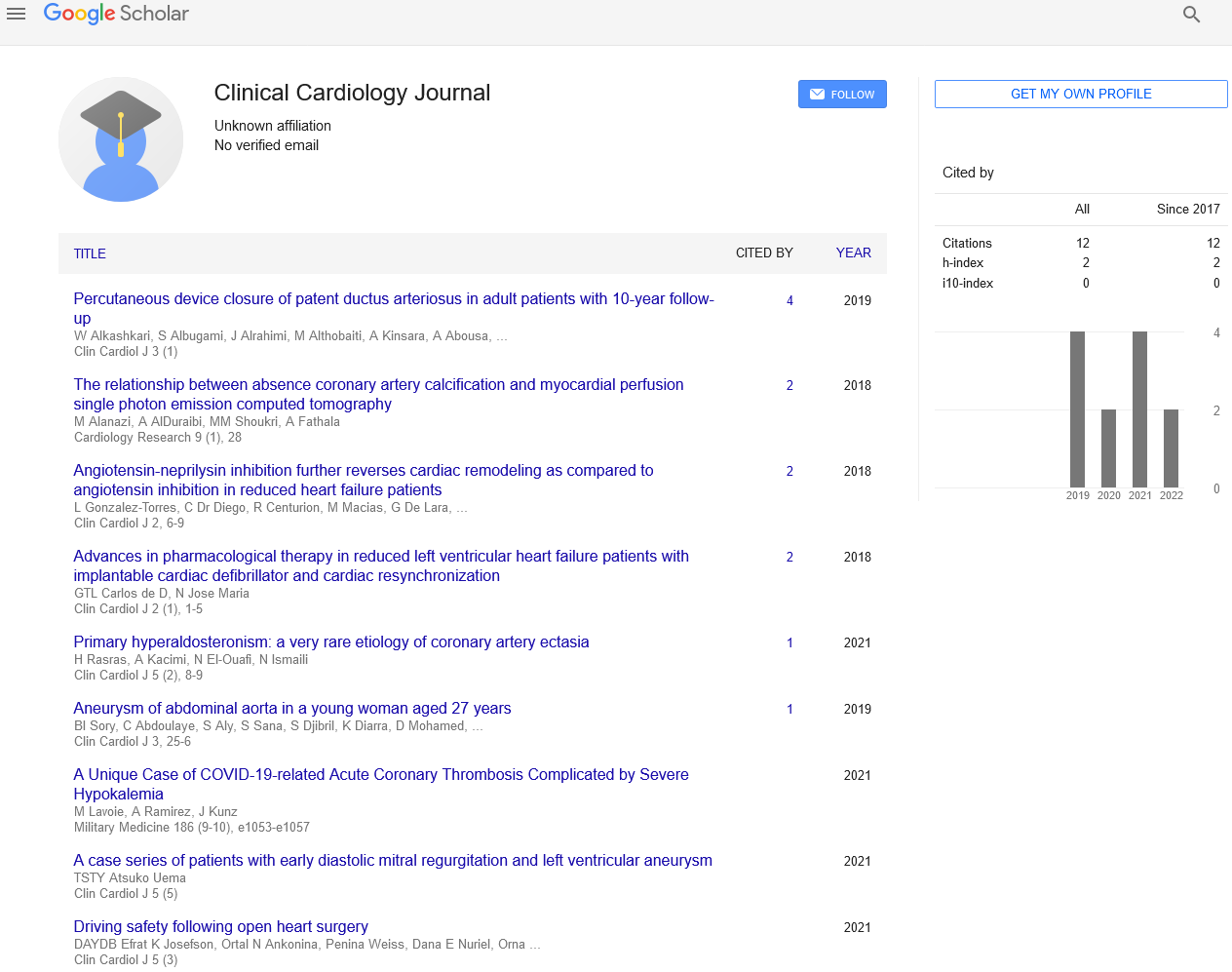Acute post COVID and chronic fatigue syndrome
Received: 02-Jul-2021 Accepted Date: Jul 07, 2021; Published: 13-Jul-2021
Citation: Yang H. Acute post COVID and chronic fatigue syndrome. Clin Cardiol J 2021;5(4):1.
This open-access article is distributed under the terms of the Creative Commons Attribution Non-Commercial License (CC BY-NC) (http://creativecommons.org/licenses/by-nc/4.0/), which permits reuse, distribution and reproduction of the article, provided that the original work is properly cited and the reuse is restricted to noncommercial purposes. For commercial reuse, contact reprints@pulsus.com
Editorial
The pathogen responsible for the coronavirus disease 2019 (COVID-19) pandemic is the severe acute respiratory syndrome coronavirus 2 (SARSCoV- 2). This has resulted in global healthcare crises and strained health resources. As the number of people recovering from COVID-19 increases, it is critical to gain a better knowledge of the healthcare difficulties that they face. COVID-19 is now known to be a multi-organ disease with a wide range of symptoms. There are increasing reports of persistent and extended sequelae after acute COVID-19, similar to post-acute viral symptoms observed in survivors of previous virulent coronavirus outbreaks.
Patient advocacy groups, many of whose members identify as long haulers, have aided in the discovery of post-acute COVID-19, a syndrome marked by persistent symptoms and/or delayed or long-term effects more than four weeks after beginning of symptoms. The current literature on post-acute COVID-19, its pathogenesis, and organ-specific consequences is reviewed in this paper. Finally, we explore important issues for COVID-19 survivors’ multidisciplinary care and offer a strategy for identifying patients at high risk for post-acute COVID-19 and coordinating their care through dedicated COVID-19 clinics. Long-term consequences in COVID-19 individuals that resemble myalgic encephalomyelitis/chronic fatigue syndrome have been a source of concern.
The mechanisms underlying such a “post-COVID-19 fatigue syndrome” must be clarified in order to create preventive and early treatment techniques for this syndrome. By combining information on the glymphatic system in this research, we were able to come up with a unique solution. According to this theory, this disease is caused by damage to olfactory sensory neurons, which causes a reduction in cerebrospinal fluid outflow through the cribriform plate, resulting in glymphatic system congestion and toxic build-up within the central nervous system.





